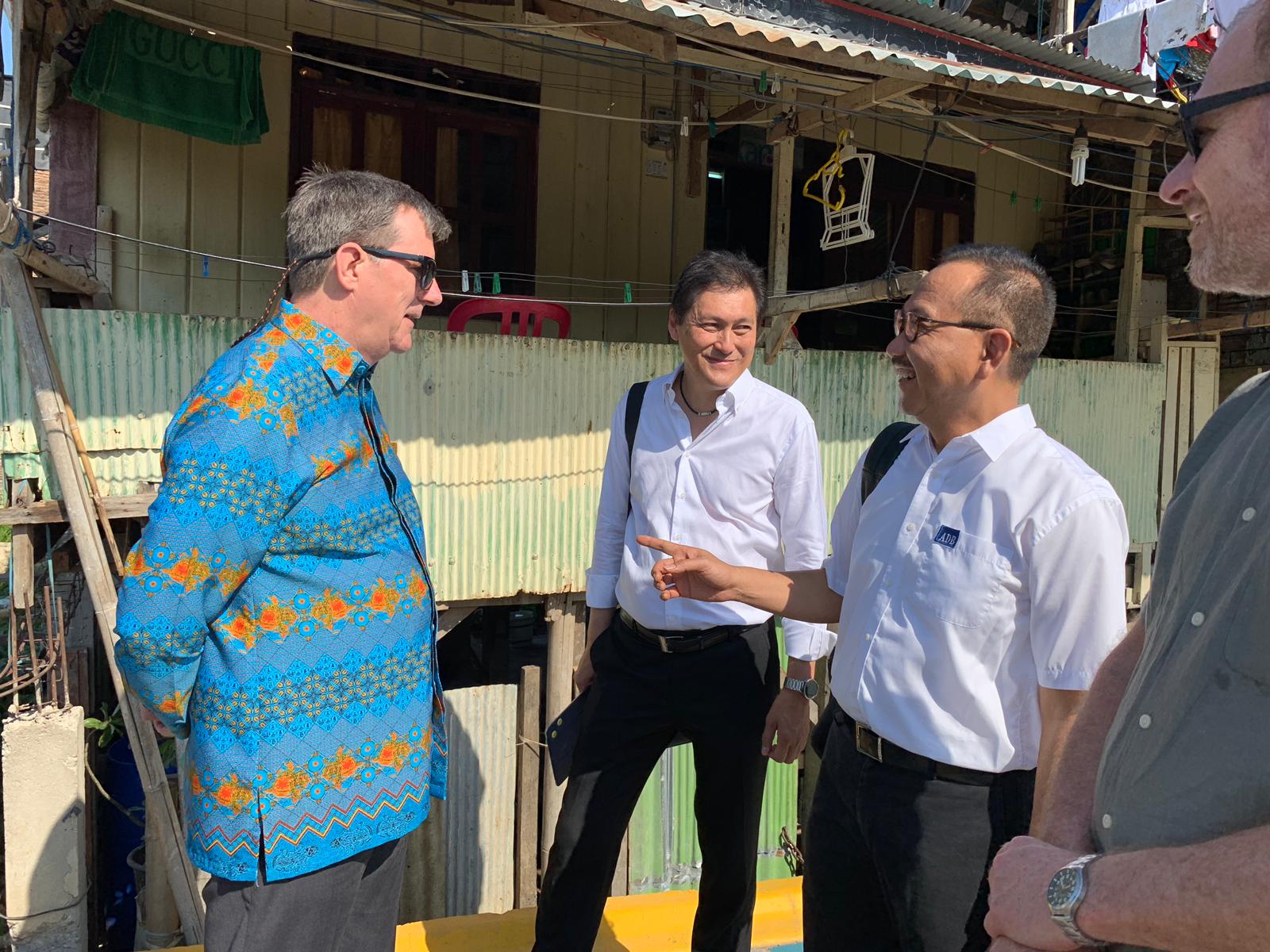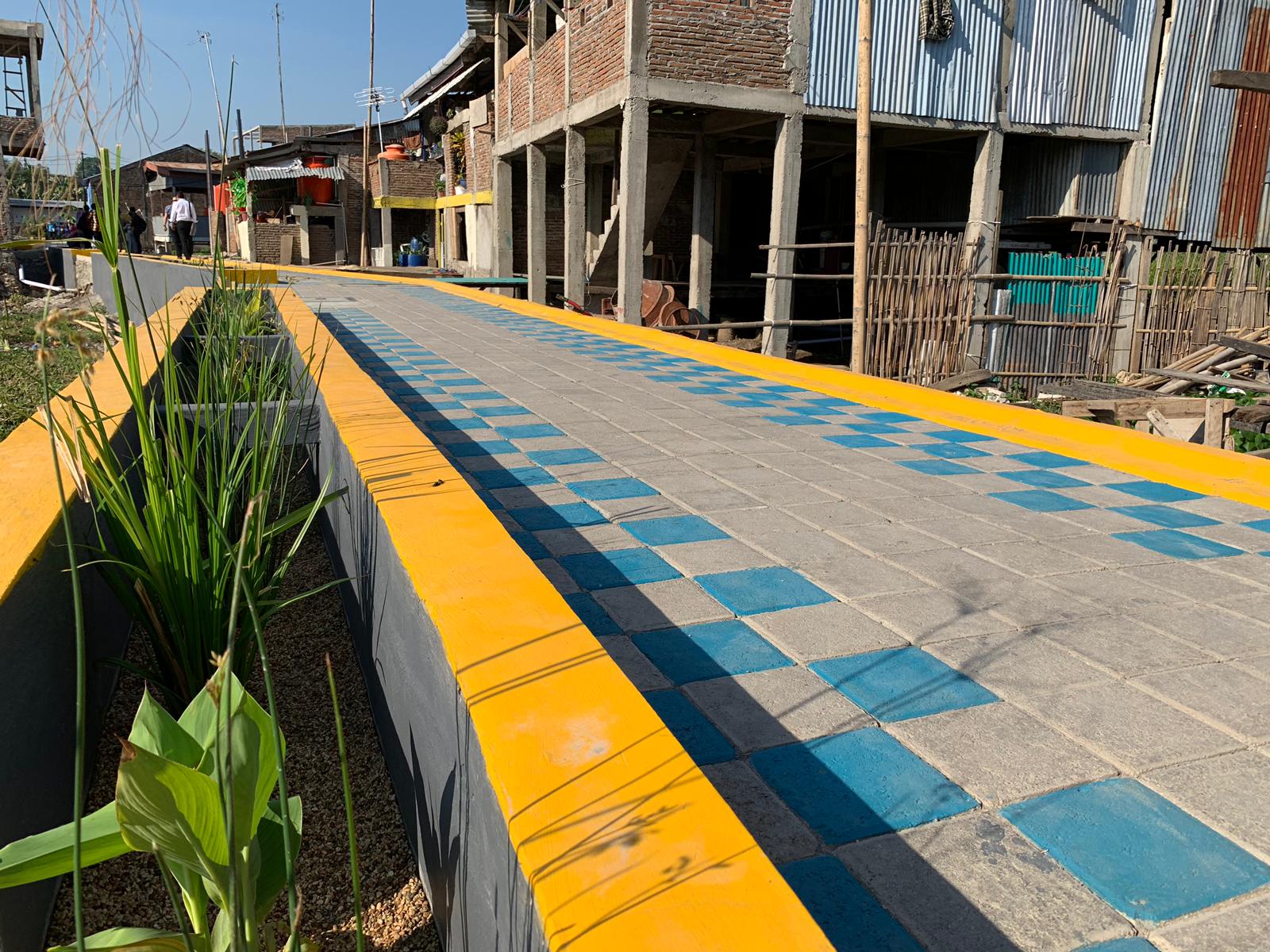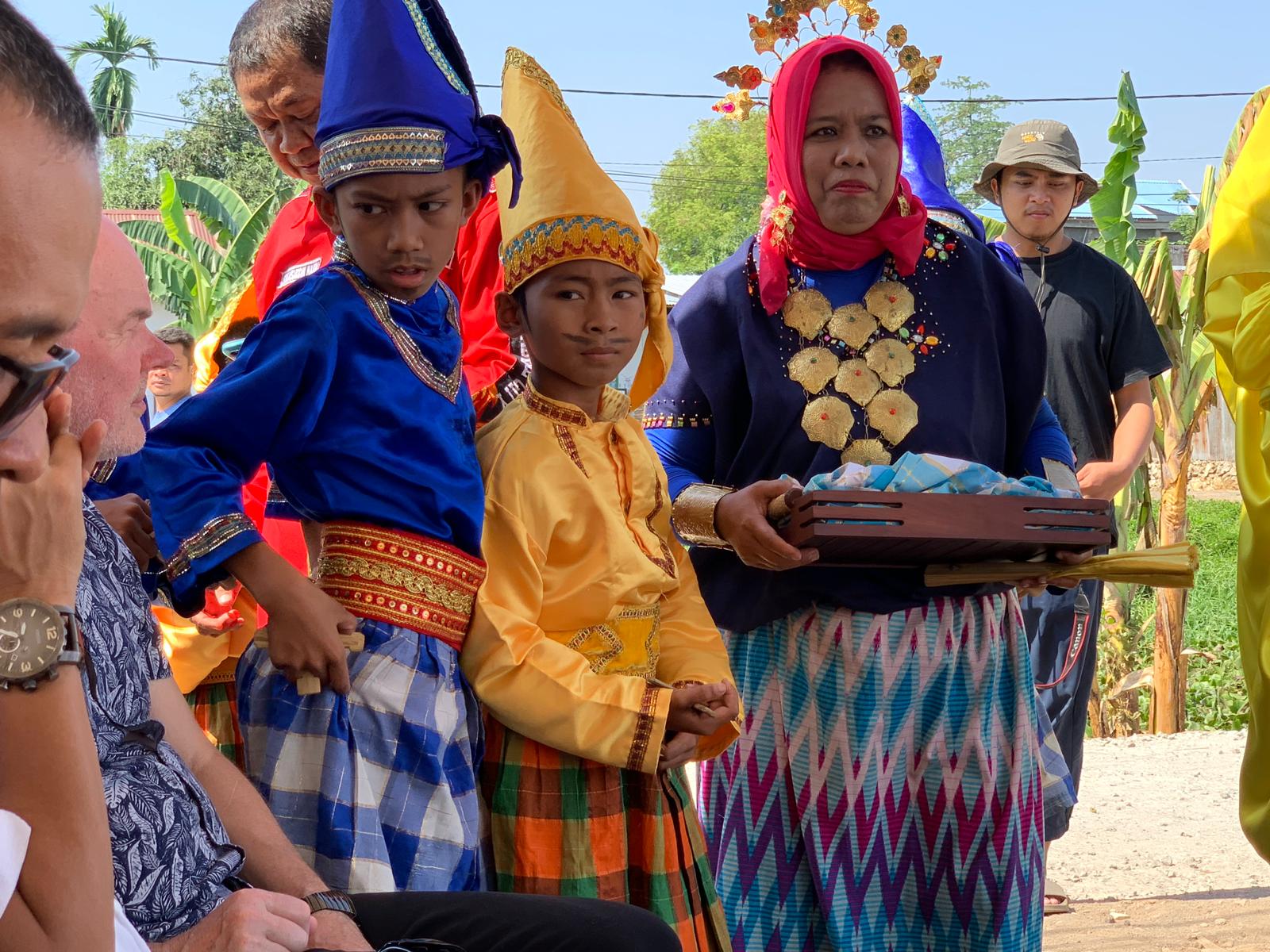RISE milestone reached in Makassar
Batua settlement in Makassar City, Indonesia, is the first neighbourhood to be upgraded with sustainable water and sanitation infrastructure under the Revitalising Informal Settlements and their Environments (RISE) program—and Professor Tony Wong was there to celebrate the milestone.
The newly upgraded neighbourhood was officially opened at a ceremony on 19 October, which Tony attended as a representative of the overseas research team, led by the Monash Sustainable Development Institute and expertise from around the world.
Batua is part of a small informal community selected as a demonstration site to showcase RISE’s water sensitive approach to upgrading informal settlements. The approach integrates infrastructure such as wetlands, biofiltration gardens, stormwater harvesting and local sanitation systems based on ‘smart’ new septic tanks in buildings and landscapes.
The CRCWSC is the RISE program’s knowledge partner, contributing to the technical design, community engagement and co-design, detailed engineering design and construction of the infrastructure.
CRCWSC partners were also significant contributors to the project. E2DesignLab assisted significantly in the design of the nature-based solutions for wastewater and greywater treatment. South East Water was instrumental in developing the pressure sewer system and donated the three communal pressure tanks for the 22-dwelling community. Melbourne Water provided flood modelling expertise in assessing the fluvial and pluvial flood vulnerability of the site.

Tony told the attendees at the Batua construction completion ceremony: ‘Our approach centres on reducing community exposure to the faecal contamination pathways that arise from waste streams.
‘These contamination pathways are the primary cause of poor public health in these communities, leading to regular outbreaks of diarrhoea and other enteric diseases. When the environment is contaminated, exposure affects many parts of the daily lives of the people who live here’.
He said RISE is working to revitalise informal settlements by introducing key water sensitive initiatives, some of which are demonstrated in Batua:
- A local sewerage system will use nature-based solutions to treat sewage. The aim is to eliminate open defecation and unsustainable disposal of sewage and septage into the surrounding environment.
- Features such as designated flood pathways, flood gates and low level flood barriers will manage the intrusion of contaminated floodwater from external catchments.
- Improved local drainage will reduce the exposure of the community to faecal contamination, and limit habitats for disease vectors.
- Alternative water sources will provide fit-for-purpose water for non-potable use.
- The reuse of treated water will create opportunities for local economies—for example, communities can use the water to grow crops or flowers that they can then sell.
Tony said, from this work, RISE aims to deliver transformative change in informal settlements—and demonstrating the elements of this approach here in Batua is the beginning the journey.
The next step for RISE in Indonesia is to revitalise six similar, but much larger, settlements in Makassar. Together, they will deliver:
- the proof-of-concept of the holistic water sensitive approach
- evidence of the cost effectiveness of that approach
- ultimately, empirical data on the beneficial health and wellbeing outcomes.
Tony concluded by saying: ‘A strong spirit of collaboration and goodwill has been critical to our success. This is the beginning of positive change for so many people, and Batua has been a significant enabler of that’.
The overseas and in-country teams in Makassar are congratulated for their achievements, including CRCWSC’s Kerrie Burge and Professor Peter Breen (E2DesignLab). Professor Diego Ramirez-Lovering from Monash Art Design and Architecture leads RISE's design and engagement work, and worked closely with the program's local team on infrastructure at Batua.


About RISE
A global team of researchers from across more than 11 disciplines is collaborating on the multi-million-dollar RISE program, which is trialling the water sensitive cities approach in 24 settlements in Makassar, Indonesia and Suva, Fiji. The program aims to demonstrate that nature-based solutions—such as constructed wetlands and bio-filtration gardens—can deliver sustainable, cost-effective health and environmental improvements.
RISE commenced in August 2017 and will conclude in July 2022.